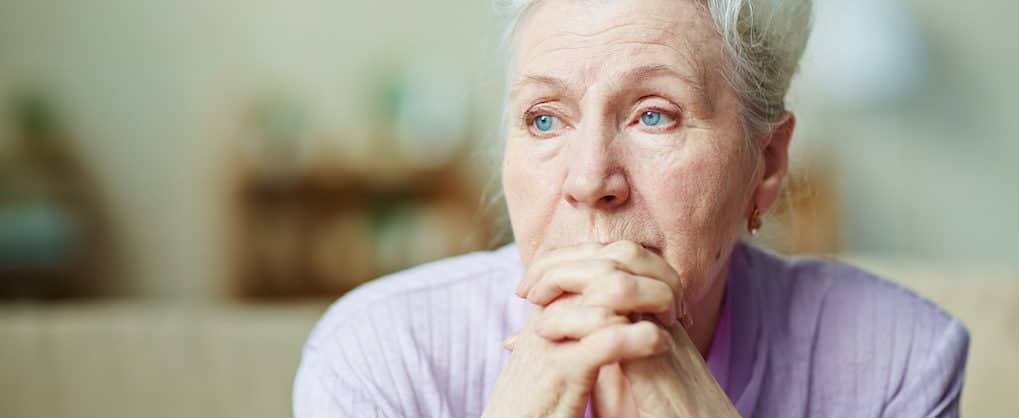Trying to find the most common problems seniors face?
Getting older can be scary, whether it’s still far off in the distance or notably getting closer.
And if you have a loved one in their golden years, they are likely to deal with some complex challenges. Unfortunately, this is a natural part of the aging process; issues like loneliness and health problems can affect anyone, no matter how old they are.
But when aging starts to affect one’s everyday living circumstances, it may be time to look into an assisted care community.
In this post, we will discuss common problems the elderly face and dig into some solutions how we can assist them with these challenges. Read along for more insight.
6 Problems the Elderly Face
Chronic Health Conditions
Chronic health conditions are loosely defined as medical conditions that require ongoing medical attention for a year or more. These conditions often limit day-to-day abilities to some extent. For example, conditions like diabetes, cancer, or heart disease would be considered chronic conditions and affect many of those suffering from one or more chronic conditions.
The CDC states that 80% of older adults have at least one chronic condition, while 50% have at least two. Those numbers are shocking and make it even more imperative to support habits that boost healthy lifestyles in the aging population.
Injury and Recovery
Older people are often at a much higher risk of physical injury due to basic deterioration of the physical body as we age. Things like muscle weakness, joint pain, low bone mass, and other issues can cause difficulty walking and getting around and lead to trips and falls, causing significant injury.
Not only is injury more prevalent in the elderly, but injury recovery also takes much longer. When we’re young and flexible, we can bounce back pretty quickly, especially because our bones are also more flexible and stronger. Regular exercise, proper nutrition, and physical and occupational therapy are preventative measures to maintain a healthy physical body and prevent injury as an older adult.
Mental Health Issues
Mental health is a massive part of our overall health, just as much as our physical health is. And it’s imperative to take steps toward addressing mental health, particularly in older adults. Older people face chronic conditions, deteriorating cognitive function, losing family members, and loneliness in nursing homes: their mental health is severely affected.
Even conditions like Alzheimer’s and dementia have symptoms such as increased anxiety and depression, which tacks on the issue of mental health on top of an already terrible condition.
Therefore, facilities have become more educated and well-versed in navigating the mental health landscape to treat depression, anxiety, and other behavioral issues triggered in our old age. By offering more support in the form of physical activity, social functions, and counseling therapy, mental health can improve in the elderly, but it’s essential to make it a priority.
Loss of Hearing and Sight
Even individuals in good health can find that their hearing and vision can decline as we age. To combat this, senior living communities will often provide larger font signage and reading materials in facilities; they can also install good sound systems with microphones, so people don’t miss announcements. Luckily, health insurance and medicare will cover eye exams, glasses, and hearing aids to help manage hearing and vision loss. Also, vitamins A, E, and C all contribute significantly to eyesight health and, if taken early enough, can help offset those symptoms.
Poor Oral Health
Oral health is one of the most overlooked issues in the elderly for many reasons. A family history of poor teeth can lead to poor oral health as we age, especially as people become unable or inefficient at caring for their teeth. People may also lose dental coverage after they retire and just not try to make it a priority. Sadly, other factors contributing to poor oral hygiene include chronic conditions like mouth cancer, dry mouth, and gum disease.
Dental care and physical health should go hand in hand with older adults because poor teeth can also lead to other issues. After all, our mouths are a core element to gut health and overall wellbeing. Interestingly enough, according to the CDC, almost a quarter of adults over 65 don’t have their natural teeth. This is one option to avoid further oral health issues, but the older people get, the harder it can be to get dental work done and to maintain a healthy mouth, even with dentures.
Bladder Control
Unfortunately, urinary incontinence and loss of bladder control are pretty common in older adults. This can happen for many reasons, such as having weak pelvic floor muscles, weak bladder muscles, enlarged prostates, nerve damage from chronic illnesses, or simply just not being able to make it to the bathroom in time.
The good thing is a lot of these issues can be remedied with a series of therapies targeting incontinence. For example, pelvic floor exercises, lifestyles, diet changes, and timed bathroom visits can help manage bladder control and avoid accidents.
Understanding Problems the Elderly Face
These may seem like typical “old people problems,” but they will affect all of us one day, and it’s essential to know how to prevent, handle, and prepare for them.
A healthy lifestyle, balanced diet, enough sleep, and physical activities are all proven to help lessen the severity of the aging process. These are also known to prevent serious ailments like heart attack, high blood pressure, managing blood sugar, and other medical conditions.
For those facing these health concerns, or those with loved ones requiring help with these conditions, reach out to Sunflower Communities.
Our therapies and activities can help support good senior health and improve quality of life overall.






